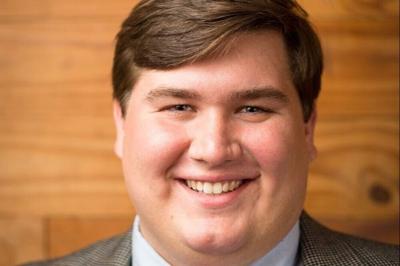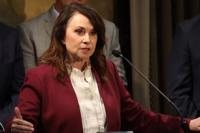
Jackson Voss
Both business and environmental groups have panned Gov. Jeff Landry’s recent executive order placing a moratorium on future carbon-capture projects in Louisiana and mandating re-evaluations of current project applications.
The oil and gas industry has invested billions of dollars in projects designed to sequester carbon dioxide from fossil fuel production in the state in a bid to reduce greenhouse-gas generation stemming from energy production. Landry’s Oct. 15 executive order acknowledges that investment in carbon capture and sequestration (CCS) will provide economic benefits such as jobs and investment for Louisiana, but he directed the state Department of Conservation and Energy to suspend reviews of new CCS applications.
The executive order also calls on the department to review existing applications for Class VI underground injection well permits for carbon dioxide to ensure that all updated state and federal regulations are followed. The order specifically calls on the department to certify compliance with laws to protect ecosystem health, endangered species and drinking water sources..
“Due to the department’s volume of applications received, over the next 45 days, the department is ordered to re-evaluate the status of applications for assessment and prioritization for the Class VI permits …” the executive order states.
Landry also indicated he has heard from Louisiana residents and communities about the impact of carbon-capture projects, which inject carbon dioxide deep inside geological formations around the state. The executive order calls on the Department of Conservation and Energy to work hand in hand with Louisiana Economic Development (LED) to ensure there is a balance between economic growth and efforts to increase public trust in the process.
CCS regulatory actions in the state have been the target of civil lawsuits by environmental groups, including Healthy Gulf.
Jackson Voss, the government affairs and policy coordinator for the New Orleans-based Alliance for Affordable Energy, said the governor’s 45-day pause will likely do little to impede the advancement of most of the ongoing CCS projects.
The executive order does not represent a “win” for environmental groups that are concerned about the effects of carbon-capture technology, Voss said in an email to the Louisiana Record.
“In our view, this order appears to be primarily aimed at pushing CCS developers towards more intentional public relations and community engagement efforts, seemingly to convince Louisiana citizens who have raised concerns about CCS in their communities that they do not need to be worried about these projects,” he said. “Otherwise, the order mainly reiterates the state’s support for CCS and its existing permitting regime, while clarifying that certain projects will be prioritized by the state for permitting.”
Voss said Louisiana has a history of neglecting its energy infrastructure, including pipelines and wells.
“This is particularly concerning given that many of these projects are intended for ‘permanent’ storage of industrial waste, which would require ‘permanent’ maintenance to be possible,” he said, adding that the carbon-capture technology will burden communities by consuming water and power resources.
The technology also fails to address public health and environmental impacts related to the burning of fossil fuels, according to Voss.
The president of the Louisiana Association of Business and Industry (LABI), Will Green, said Landry’s executive order on CCS sends the wrong message and may cause Louisiana to lose out on carbon-capture investments to neighboring states, such as Texas.
““Carbon capture and sequestration is a key piece to growing and retaining the high-wage energy, industrial and manufacturing jobs that sustain Louisiana families, while also ensuring the long-term viability of our state’s oil, gas and petrochemical industries,” Green said in a prepared statement.
Mike Moncla, president of the Louisiana Oil and Gas Association, also disagreed with the executive order and expressed hope that it would be lifted sooner rather than later.
“... Since 2010, over 47 billion metric tons of CO2 have been safely injected and ultimately stored in Louisiana formations,” Moncla said in a statement. “Carbon capture is a proven tool that will bring significant economic development and new opportunities to our state and our country, and we remain committed to advancing these benefits for Louisiana.”






